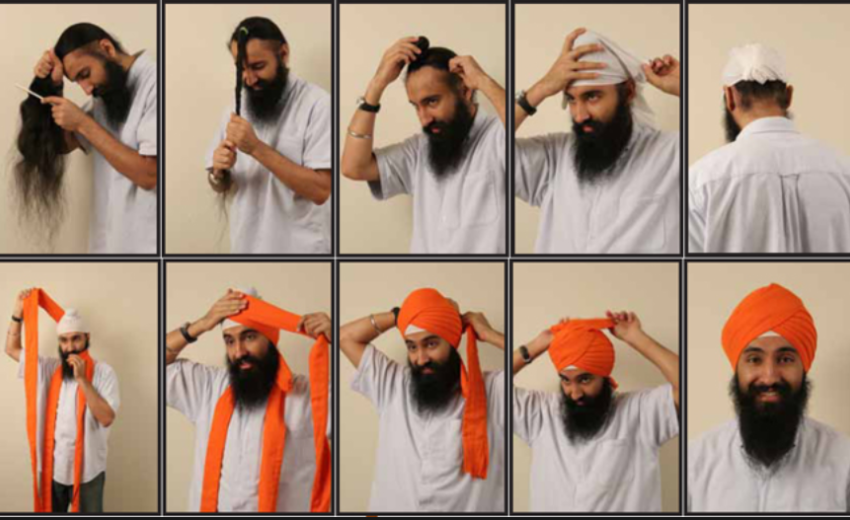 Increasing numbers of Sikh men are turning to surgery to reverse hair loss caused by tightly wound turbans it has been claimed.
Increasing numbers of Sikh men are turning to surgery to reverse hair loss caused by tightly wound turbans it has been claimed.
A leading hair transplant specialisty centre – The Farjo Medical Centre – reports that a growing proportion of its patients now come from the male Sikh community. Men as young as 20-years-old are turning to surgery after suffering traction alopecia, caused by turbans pulling on the hair.
According to Sikh religious laws, the turban is required to cover a man’s long, uncut hair, which is wound into a knot, along with a turban, on top of the head.
The long hair required by Sikhs to create the ‘rishi’ knot is being put at risk by the practice itself, as the knot pulls on the hair, resulting in hair loss. Male Sikhs start to wear their hair wound into a knot from as young as 5-years-old, which then continues when they begin to wear a turban.
Permanent removal of the turban is then forbidden. Accordingly, most Sikhs wear this style for 24 hours a day, leading to noticeable premature hair loss – particularly in the frontal scalp area.
The turban is steeped in 400 years of history, meaning that the majority of the 10 million male Sikhs worldwide aren’t aware of the problems that can arise from wearing one. Dr Bessam Farjo, former president of the International Society of Hair Restoration Surgery (ISHRS) and founder of Farjo Medical Centre, is urging turban wearers to prevent this problem by winding their turbans less tightly to minimise the stress put on the hair. Dr Farjo said: “We are treating a significant number of patients who have suffered hair loss caused by wearing a turban. Hair transplant surgery can restore the hair permanently, as long as the wearer puts less stress on the hair.”
The Farjo Medical Centre warns that turban wearers aren’t the only people affected by traction alopecia due to choices of headwear or hair styles. The problem also commonly occurs as a result of hair braiding, hair extensions, tight ponytails and wearing tight fitting hats. Dr. Bessam Farjo and his wife Dr Nilofer Farjo head up the UK’s leading hair transplant surgery. They carry out more than 300 operations each year at their Manchester clinic.
More than 4,000 people have travelled from across the UK, Europe and as far as the Middle East, Australia and the United States, to the Farjo Medical Centre.
The centre has an international reputation for not only using the latest hair transplantation techniques – recognised throughout the surgical field – but also for placing significant emphasis on developing pioneering ways to counter hair loss.
SikhNet Editor's Note: Let's nip this specious "research" in the bud. The problem is not with wearing the turban, but with improper hair care. Hair must be combed down at night and then joora retied in the morning. Keeping joora tied all the time does not allow hairs to relax properly.

